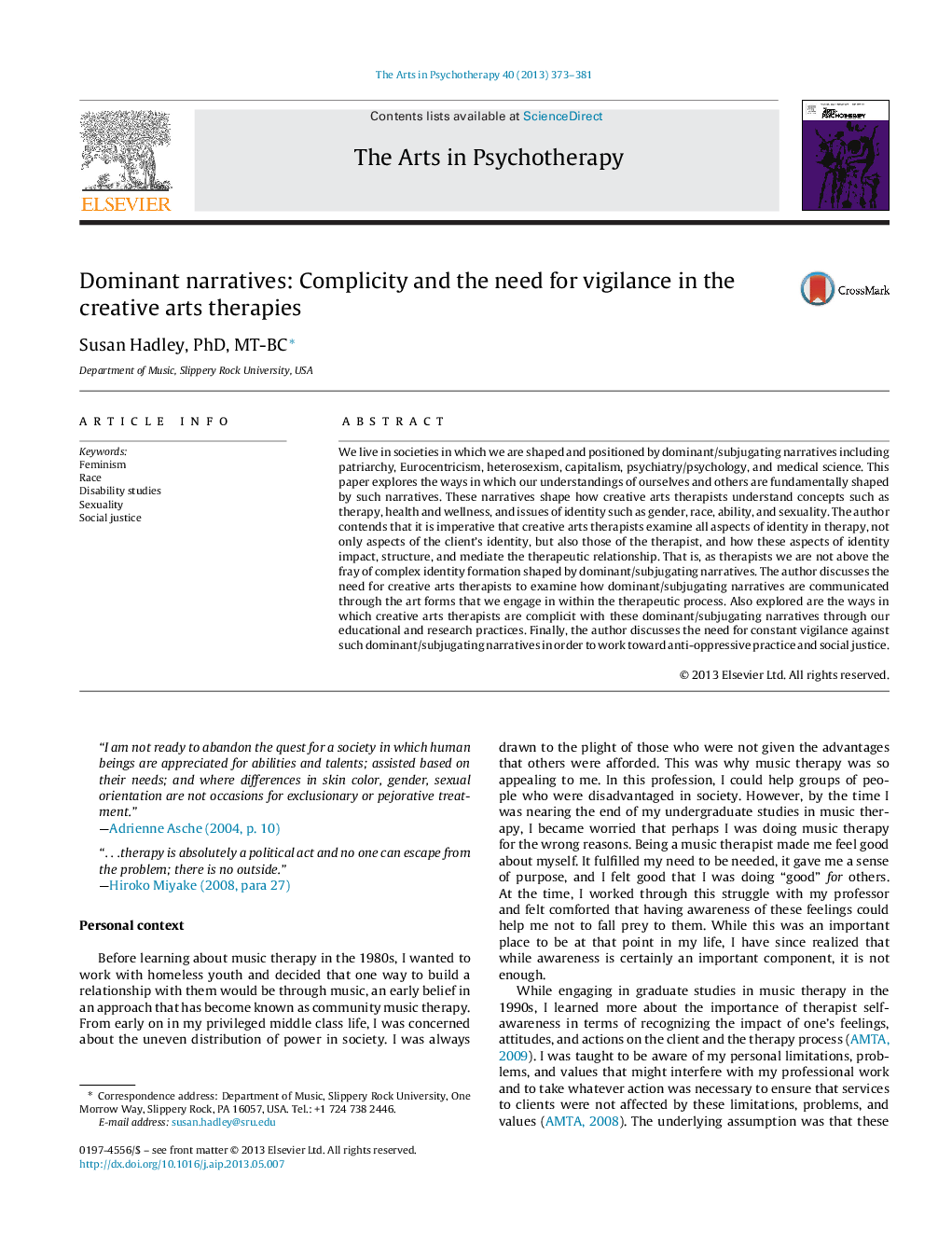| کد مقاله | کد نشریه | سال انتشار | مقاله انگلیسی | نسخه تمام متن |
|---|---|---|---|---|
| 343677 | 617194 | 2013 | 9 صفحه PDF | دانلود رایگان |

• Dominant narratives shape and differentially situate individuals, groups, and societies.
• Critical theories seek to expose and create impetus for action against subjugation.
• Examination of sites of privilege is crucial for expanding therapist self-awareness.
• Our educational and clinical practices are complicit with dominant narratives.
• We must establish anti-oppressive practices and work toward greater social justice.
We live in societies in which we are shaped and positioned by dominant/subjugating narratives including patriarchy, Eurocentricism, heterosexism, capitalism, psychiatry/psychology, and medical science. This paper explores the ways in which our understandings of ourselves and others are fundamentally shaped by such narratives. These narratives shape how creative arts therapists understand concepts such as therapy, health and wellness, and issues of identity such as gender, race, ability, and sexuality. The author contends that it is imperative that creative arts therapists examine all aspects of identity in therapy, not only aspects of the client's identity, but also those of the therapist, and how these aspects of identity impact, structure, and mediate the therapeutic relationship. That is, as therapists we are not above the fray of complex identity formation shaped by dominant/subjugating narratives. The author discusses the need for creative arts therapists to examine how dominant/subjugating narratives are communicated through the art forms that we engage in within the therapeutic process. Also explored are the ways in which creative arts therapists are complicit with these dominant/subjugating narratives through our educational and research practices. Finally, the author discusses the need for constant vigilance against such dominant/subjugating narratives in order to work toward anti-oppressive practice and social justice.
Journal: The Arts in Psychotherapy - Volume 40, Issue 4, September 2013, Pages 373–381